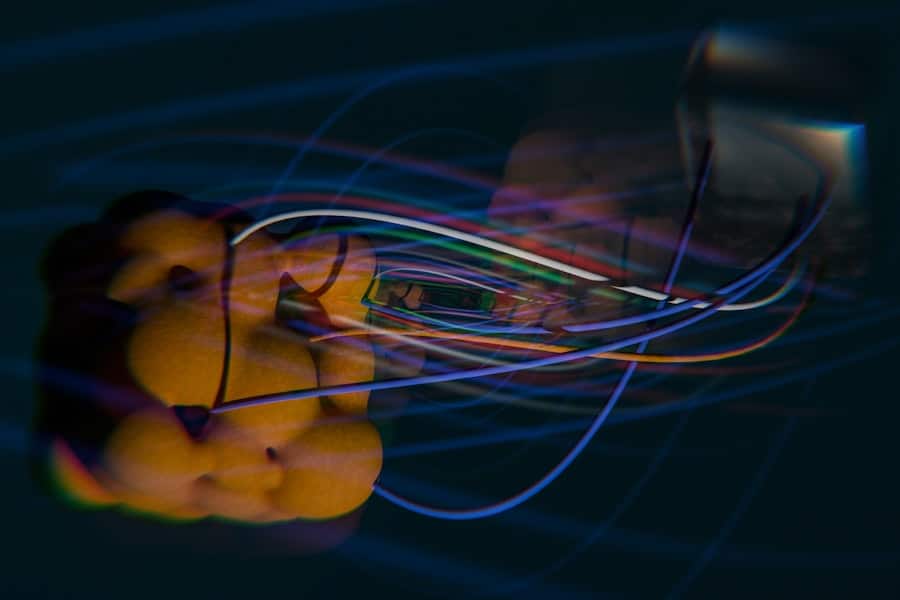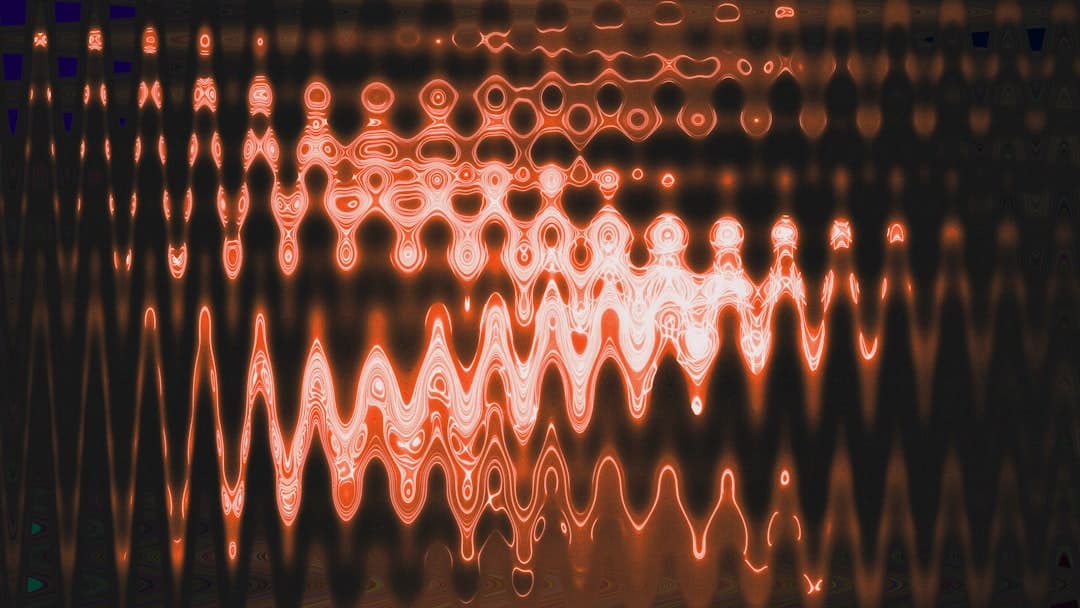Quantum sensors represent a groundbreaking advancement in measurement technology, leveraging the principles of quantum mechanics to achieve unprecedented levels of sensitivity and precision. Unlike classical sensors, which rely on macroscopic phenomena, quantum sensors exploit the unique behaviors of quantum states, such as superposition and entanglement. This allows them to detect minute changes in physical quantities, such as gravitational fields, magnetic fields, and time intervals, with remarkable accuracy.
The development of quantum sensors has opened new avenues for scientific exploration, particularly in fields that require high-resolution measurements, such as space exploration. The potential applications of quantum sensors are vast and varied, ranging from fundamental physics experiments to practical uses in navigation and communication systems. In the context of space exploration, these sensors can provide critical data that enhances our understanding of the universe.
For instance, they can be employed to measure gravitational waves, map the magnetic fields of celestial bodies, or even detect dark matter. As space agencies and private companies continue to push the boundaries of exploration beyond Earth, the integration of quantum sensor technology into their missions is becoming increasingly vital.
Key Takeaways
- Quantum sensors offer unprecedented sensitivity and precision for space exploration tasks.
- They are currently used in navigation, gravitational field mapping, and detecting cosmic phenomena.
- Challenges include technical complexity, environmental sensitivity, and integration with existing spacecraft systems.
- Future advancements could enable deeper space missions and improved data accuracy.
- Collaborative efforts between agencies and research institutions are crucial for advancing quantum sensor technologies.
Advantages of Quantum Sensors for Space Exploration
One of the most significant advantages of quantum sensors is their unparalleled sensitivity. Traditional sensors often struggle to detect weak signals amidst noise, but quantum sensors can discern these faint signals due to their ability to utilize quantum states. For example, a quantum gravimeter can measure gravitational variations with a precision that far exceeds that of classical gravimeters.
This capability is particularly beneficial in space exploration, where understanding gravitational fields can provide insights into the composition and structure of celestial bodies. Moreover, quantum sensors can operate in extreme conditions that are typical in space environments. The harsh conditions of outer space—such as extreme temperatures, radiation levels, and vacuum—pose significant challenges for conventional sensors.
However, many quantum sensor technologies are inherently robust and can function effectively under these conditions. For instance, atomic clocks based on quantum technology are not only highly accurate but also resilient to environmental fluctuations. This resilience makes them ideal for long-duration space missions where reliability is paramount.
Current Applications of Quantum Sensors in Space Exploration

Currently, several space agencies are actively exploring the use of quantum sensors in their missions. NASA has been at the forefront of this initiative, employing atomic interferometry techniques to develop highly sensitive gravimeters for measuring gravitational fields on other planets and moons. These instruments can help scientists understand the internal structure of celestial bodies by detecting variations in gravity that indicate differences in density and composition.
Another notable application is the use of quantum magnetometers for mapping magnetic fields in space. The European Space Agency (ESA) has been utilizing these advanced sensors to study the magnetic environment around Earth and other planets. By measuring magnetic field fluctuations with high precision, researchers can gain insights into planetary atmospheres and their interactions with solar winds.
This information is crucial for understanding planetary habitability and the potential for life beyond Earth.
Challenges and Limitations of Quantum Sensors in Space Exploration
Despite their numerous advantages, the deployment of quantum sensors in space exploration is not without challenges. One significant hurdle is the complexity of the technology itself. Quantum sensors often require sophisticated setups and precise control mechanisms to maintain their quantum states.
This complexity can lead to increased costs and logistical challenges when integrating these sensors into spacecraft systems. Additionally, while quantum sensors excel in sensitivity, they can be susceptible to environmental noise and interference. In the vacuum of space, factors such as cosmic radiation and thermal fluctuations can affect the performance of quantum sensors.
Researchers are actively working on mitigating these issues through advanced shielding techniques and error-correction algorithms.
Future Potential of Quantum Sensors in Space Exploration
The future potential of quantum sensors in space exploration is immense. As technology continues to advance, we can expect even more sophisticated quantum sensors capable of measuring a wider array of physical phenomena with greater accuracy. For instance, future missions may utilize quantum sensors to detect gravitational waves from distant cosmic events or to map dark matter distributions across the universe.
Moreover, the miniaturization of quantum sensor technology could lead to the development of compact devices suitable for small satellites or CubeSats. These smaller platforms could carry advanced quantum sensors into low Earth orbit or beyond, enabling a new generation of scientific experiments and observations without the need for large, expensive spacecraft. This democratization of access to advanced sensing technology could significantly enhance our ability to explore and understand the cosmos.
Quantum Sensor Technologies for Space Missions

Several specific quantum sensor technologies are being developed for potential use in space missions. One prominent example is the cold atom interferometer, which utilizes ultra-cold atoms to create interference patterns that can be used to measure gravitational fields with extreme precision. These devices have shown promise in laboratory settings and are being adapted for use in space environments.
Another exciting development is the use of superconducting qubits for sensing applications. These qubits can be employed in magnetometry to detect weak magnetic fields with high sensitivity. Their ability to operate at low temperatures makes them suitable for space missions where thermal management is critical.
Researchers are exploring ways to integrate these qubit-based sensors into compact systems that could be deployed on various spacecraft.
Collaborations and Partnerships in Quantum Sensor Development for Space Exploration
The advancement of quantum sensor technology for space exploration is not solely the domain of individual organizations; it often involves collaborative efforts between academic institutions, government agencies, and private companies. For instance, partnerships between NASA and universities have led to significant breakthroughs in quantum sensing research. These collaborations leverage academic expertise in quantum mechanics while providing access to funding and resources necessary for practical applications.
Private companies are also playing an increasingly important role in this field. Startups focused on quantum technology are developing innovative solutions that can be integrated into existing space missions or new exploratory initiatives. By fostering an ecosystem that encourages collaboration between various stakeholders, the field of quantum sensing is poised for rapid advancements that will benefit space exploration efforts.
The Role of Quantum Sensors in Advancing Space Exploration
Quantum sensors are set to play a transformative role in advancing our understanding of the universe through space exploration. Their unique capabilities allow scientists to gather data with unprecedented precision, enabling new discoveries about celestial bodies and cosmic phenomena. As research continues and technology evolves, we can anticipate a future where quantum sensors become integral components of space missions, providing insights that were previously unattainable.
The ongoing development and deployment of these advanced sensing technologies will not only enhance our scientific knowledge but also pave the way for new exploratory missions beyond our solar system. As we stand on the brink of a new era in space exploration, the contributions of quantum sensors will undoubtedly shape our journey into the cosmos and deepen our understanding of the fundamental laws governing our universe.
In the realm of space exploration, the development of quantum sensors is poised to revolutionize our understanding of the universe. A related article that discusses the importance of staying updated with technological advancements is available at What Trends Are Predicted for 2023.
FAQs
What are quantum sensors?
Quantum sensors are devices that utilize principles of quantum mechanics, such as superposition and entanglement, to measure physical quantities with extremely high precision and sensitivity.
How are quantum sensors used in space exploration?
Quantum sensors can be used in space exploration to improve navigation, detect gravitational waves, measure magnetic and electric fields, and enhance the accuracy of instruments on spacecraft and planetary probes.
What advantages do quantum sensors offer over traditional sensors in space missions?
Quantum sensors offer higher sensitivity, greater accuracy, and the ability to detect minute changes in physical parameters, which can lead to improved data quality and new scientific discoveries in space environments.
What types of quantum sensors are relevant for space applications?
Relevant types include atomic interferometers, quantum gravimeters, magnetometers based on nitrogen-vacancy centers in diamonds, and atomic clocks, all of which can be adapted for use in space missions.
What challenges exist in deploying quantum sensors in space?
Challenges include ensuring the sensors can operate reliably in harsh space conditions, miniaturizing the technology for spacecraft integration, managing power consumption, and protecting sensitive quantum states from environmental noise.
Have quantum sensors been tested or used in actual space missions?
Yes, some quantum sensor technologies have been tested on satellites and the International Space Station, demonstrating their potential for future space exploration missions.
How can quantum sensors improve navigation in space?
Quantum sensors can provide ultra-precise measurements of acceleration and rotation, enabling more accurate inertial navigation systems that do not rely solely on external signals like GPS.
What role do quantum sensors play in detecting gravitational waves in space?
Quantum sensors, such as atom interferometers, can detect tiny distortions in spacetime caused by gravitational waves, potentially allowing space-based observatories to observe these phenomena with greater sensitivity.
Are quantum sensors expected to impact planetary exploration?
Yes, quantum sensors can enhance the detection of subsurface structures, magnetic fields, and other environmental factors on planets and moons, aiding in geological and atmospheric studies.
What is the future outlook for quantum sensors in space exploration?
The future outlook is promising, with ongoing research aimed at improving sensor robustness, miniaturization, and integration, which will likely lead to widespread adoption in upcoming space missions for scientific and navigational purposes.

